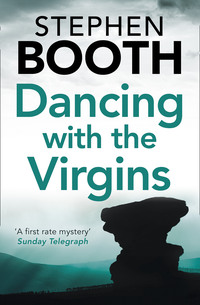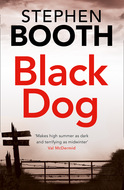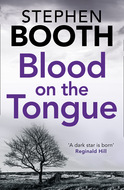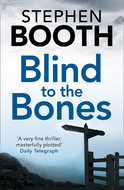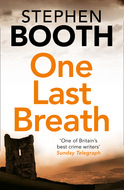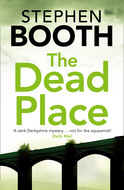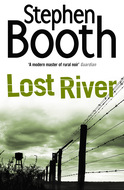Kitap dosya olarak indirilemez ancak uygulamamız üzerinden veya online olarak web sitemizden okunabilir.
Kitabı oku: «Dancing With the Virgins», sayfa 2
2
Fifteen miles to the north, in the town of Edendale, the battle had been going on for an hour and a quarter already. The police officers in the front line were battered and breathing hard, their faces swollen with exertion, and their hair stuck to their foreheads with sweat. One or two had their shirts ripped. Another had blood trickling from a cut on his eye.
Detective Constable Ben Cooper could see his colleague, Todd Weenink, deep in the thick of it. Weenink had two PCs from the Tactical Support Unit close on either side of him, and there were more men coming in from behind to assist them. They looked exhausted, their expressions grim, but determined. They were struggling against the odds, fighting a battle of containment that they were constantly in danger of losing.
The students were charging forward in a solid mass, forcing the police to give ground under the onslaught. In the melee, close up, anything could be happening – a poke in the eye, a boot in the crutch, teeth sinking into an ear. The police had not been issued with riot shields or helmets today; there was no body armour, no snarling Alsatians or horses to keep the students at bay. There had been no authority given for the use of special weapons, no tear gas canisters held nervously in reserve.
In addition, the police had to face a ceaseless barrage of noise – chanted slogans, shouts of abuse and a constant stream of profanities from a hostile crowd.
Cooper pulled his hands out of his jeans pockets and turned his coat collar up to try to shut out the cacophony. If he could, he would have closed his eyes, too, to avoid seeing the slaughter, to stop himself from imagining the consequences if the police line collapsed. In another moment, the day could end in total humiliation for Derbyshire Constabulary E Division. And not a single arrest made so far.
‘What are we going to do, Sarge?’ he said.
Detective Sergeant Rennie was an old hand. He had seen it all before. He rubbed his jowls, pulled his anorak closer around his shoulders, and winced as a PC went down and was trampled underfoot.
‘Conduct a survey,’ he said. ‘We’ll send out a questionnaire.’
Cooper nodded. ‘I suppose so. But it’s a bit pathetic, isn’t it?’
‘We’ll make sure there are lots of tick boxes to fill in.’
‘Even so …’
Rennie shrugged and sighed. ‘It’s all we can do, Ben. Otherwise, we just have to sit back and let it happen.’
The police formed a wall and turned to face their attackers again. Beyond the opposing lines, Cooper could see the main buildings of the High Peak College campus, set on the lower slopes of the hill. They looked down on Edendale like benign giants, the educational heights of the Eden Valley.
He began to search his pockets for a packet of mints to take the taste of nausea from his mouth. He had a lot of pockets – in his jeans, in his checked shirt, on the inside and the outside of his waxed jacket. But all he found was a scatter of cashpoint receipts, two empty shotgun cartridge cases and half a packet of dog biscuits.
Cooper knew there was more than just education that went on in those college buildings on the hill. He had been there himself, for long enough to collect the A-levels he needed to get into the police service. His fellow students had accused him of being single-minded, as if his determination made them guilty about their own pursuit of parties and casual sex. But there had been a demon driving Ben Cooper that his contemporaries would never have understood – a jealous God who would not have tolerated parties.
Dave Rennie sat back comfortably in his seat and unscrewed the top of a vacuum flask. He offered Cooper a plastic cup, which he refused as soon as he got a whiff of the metallic tang of the coffee. The sergeant’s expression was serious, his forehead creased with anxiety, like a man with a great responsibility on his mind.
‘You see, if they get rid of the kitchen and sack the canteen staff, that means they’ll put vending machines in instead,’ he said. ‘And then what would happen? I mean, would anybody use them? There’s no point in spending money on vending machines if they don’t get used. It would look bad in the budgets, wasting money at a time like this.’
Cooper watched Todd Weenink duck his head and drive his shoulders forward to meet a wiry-haired youth who’d been tormenting him all afternoon. There was a thud as their skulls connected and a scuffing as their feet lashed out.
The crowd behind Cooper began yelling. Then the police back-pedalled. Officers fell and were trampled as they lay on the ground. But Weenink broke away and looked around, bemused. His eyes were dazed, as if he might have taken a knock on the head. Then he looked up and caught sight of a student running past him, and made an instinctive grab. The student’s legs folded beneath him under the impact of Weenink’s sixteen stone, and they both sprawled in the mud, exhausted and gasping.
Cooper smiled. Quite by chance, it had been the right student Weenink had flattened. The High Peak College wing-threequarter happened to be in possession of the ball, and had been racing for the touchline, within seconds of scoring the winning try of the match. Even while the two opposing players were struggling to get up again from the tackle, the referee blew the final whistle. The match had been saved: 12–10 to Edendale Police.
‘Thank God for that,’ said Cooper.
‘Honour preserved, I suppose,’ said Rennie, putting away his flask.
‘I don’t know about that, Sarge. But our lot always trash the bar if they lose.’
Cooper left the touchline and headed for the clubhouse. In his early days in E Division, they had tried to recruit him to the rugby team. They had thought he looked tall and fit enough to be an asset, but had accused him of lacking ruthlessness in the ruck. Now his job was to order the jugs of beer for the changing-room celebrations. Loyalty to your colleagues meant doing such things on a Sunday afternoon, even when you would rather be at home watching videos with your nieces.
After ten years, Cooper was able to look back on his days at High Peak College with some nostalgia. His life had possessed a definite purpose then. Succeeding in his exams had been his role in life, and joining the police his destiny. The feeling had stayed with him through his time as a uniformed constable on the beat; it had followed him as he moved into CID and began to learn a different way of policing. His progress had been watched every inch of the way, and mostly approved of. Mostly. The times when he had made mistakes or expressed doubts were still imprinted in his memory.
Then, two years ago, everything had changed. With the violent death of his father, Police Sergeant Joe Cooper, a prop had been knocked from under him, and a great weight had been lifted from his back. His guiding hand had been taken away, and his life had been given back to him. But it had already been too late for Ben Cooper. He had become what his father made him.
‘So that’s why we have to do this Vending Machine Usage Survey,’ said Rennie, pronouncing the capital letters carefully as he walked at Cooper’s shoulder. ‘To get an idea of the possible take-up on the proposed new refreshment facilities. It’s so that somebody in Admin at HQ can make an informed decision. A decision supported by constructive feedback from the customer base.’
Cooper could practically see the internal memo that Rennie was quoting from. The sergeant had coffee soaking into his moustache. He was wearing knitted woollen gloves, for Heaven’s sake. He looked like somebody’s granddad on an off-season outing to Blackpool.
Cooper was conscious that his own thirtieth birthday was approaching next year. It loomed in the distance like a summer storm cloud, making him feel his youth was nearly over before he had got used to being in his twenties. One day, he could be another Dave Rennie.
‘I think Todd might have got a bit of concussion, Sarge.’
‘He always looks like that,’ said Rennie.
‘He got a knock on the head.’
‘Don’t worry – Weenink doesn’t let anybody mess with him. He always gets his revenge.’
Todd Weenink was different, of course. During the last couple of months Cooper had found himself thrown together with Weenink in the latest round of restructuring in the division. In these circumstances, the relationship became almost like a marriage. The issue of ‘them and us’ became focused on a single individual. But there were times when you needed another officer at your side.
Without the man or woman at your side, you could find yourself looking the wrong way at the wrong time. You had to have a person you could put your trust in. They supported you; and you supported them. Cooper knew it was a law written in invisible ink on the back of the warrant card they gave you when you were sworn in as a constable. It was sewn into your first uniform like an extra seam; it was the page that they always forgot to print in the Police Training Manual.
Only a couple of weeks earlier, Weenink had been the man at his side when they had raided a small-scale drugs factory in a converted warehouse on the outskirts of Edendale. One of the occupants had produced a pickaxe, but he had been too slow, and they had executed a takedown between them, with no one injured.
Cooper reassured himself by thinking of his date with Helen Milner later on. Within an hour, he would be out of the rugby club and away. He and Helen hadn’t decided where they would go yet. Probably it would be a walk to get the noise out of his head, then a drink or two at the Light House before a meal somewhere. The Light House was where they had gone the very first time they had gone out together. It was hardly more than two months ago that they had met again at Helen’s grandparents’ house in the village of Moorhay and resumed a relationship that had started when they were schoolfriends. But their new beginning had not been without difficulties. Nothing ever was.
The clubhouse corridor smelled of sweat and mud and disinfectant, with a permanent underlying essence of embrocation. Dave Rennie helped Cooper carry the jugs of beer to the players in the visitors’ changing room. Then the sergeant’s pager began to bleep.
‘Oh, God damn it. What now?’
Cooper watched Rennie go to the phone in the corridor. He looked back over his shoulder at the changing-room door, which swung open with the constant passing to and fro of players and supporters. Todd Weenink was out of the shower, towelling himself in the middle of a raucous mob, his naked bulk perfectly at home in a melee of pink male flesh and echoing laughter.
Weenink already had a beer in front of him. It was amazing that he could keep up the pace. He had arrived for the match only at the very last minute, when everyone else was changed and ready to go out on the pitch, thinking they were going to have to play a man short, and cursing him for letting them down. No doubt Weenink had been out on the booze the night before and had woken up in someone else’s bed many miles away, with rugby the last thing on his mind.
Cooper shook his head at the intrusive thoughts that came to him – the contrast between Weenink’s muscular, hairy nakedness and the picture he carried in his mind of the last colleague he had worked so closely with. Todd’s open, up-front, relaxed maleness was a world away from Detective Constable Diane Fry. Former Detective Constable, he should say. Now Acting Detective Sergeant.
It was a subject Cooper didn’t really want to think about. It brought with it painful memories, some of which he still didn’t understand but suspected might be his own fault.
After a few minutes, he realized Dave Rennie hadn’t come back into the bar. In the steamy atmosphere of the changing room, he couldn’t see Todd either. He had to shout to make himself heard, even when close enough to tap one of the players on the shoulder.
‘Have you seen Todd Weenink?’
‘He’s gone,’ said the player. ‘Control bleeped Dave Rennie, and Todd went off with him. They went off in a hurry, too. Todd hadn’t even managed to put his trousers on.’
‘You’re joking.’
‘No, mate. I saw him myself, with his arse hanging out. Should you be with them?’
Cooper stared bleakly at the player. ‘I’m not on call. Control wouldn’t have asked for me.’
‘Right. You’re the lucky one, then. You can have a few beers.’
‘A few beers, yeah. What more could I ask for?’
Suddenly, Cooper’s mood plummeted. He felt as if he had just been jilted by a lover. If there was a job on, he wanted to be there. He wanted to be part of the team. He wondered why loyalty had to be so painful. And when would he learn to give his loyalty in the right direction? He ought to have learned that lesson from Diane Fry – their brief relationship had certainly been difficult enough to drive it home. Cooper shuddered at a premonition. He thought it likely that she could inflict more pain on him yet, given the chance.
The police vehicles cluttering up the roadsides at the bottom of the main track on to Ringham Moor made Diane Fry frown in exasperation. The scene looked chaotic, as cars with beacons flashing arrived one after another in the gathering dusk and slewed across the narrow verge. A minibus carrying the Tactical Support Unit was unable to squeeze through the gap left by the parked cars until a uniformed sergeant yelled at someone to move. Figures in reflective yellow jackets were caught briefly in the headlights as they passed aimlessly backwards and forwards.
Fry itched to take control of the situation, to bring order and a bit of sense to officers so charged with excitement and adrenalin that they were causing more trouble than they were worth. But, in fact, she shouldn’t even be here at all. She had thought she had got away from E Division, that her few weeks in Edendale had been a bad dream she could soon put behind her. But here she still was, answering the call. And before she knew what was happening, she had found herself out in the Peak District countryside again, where civilization seemed like a dim memory and the twenty-first century was reduced to the fantasy of a Victorian novelist.
She stood with Detective Inspector Paul Hitchens on the rocks overlooking the road. A fine drizzle was settling on their clothes and in their hair, and turning the gritstone slab under their feet a shade darker. With Hitchens at her side, Fry felt as though she had taken another step closer in her ambitions. She was already ‘acting up’ as a detective sergeant, with a transfer to a permanent DS’s job in the offing when the imminent re-shuffle took place.
A move couldn’t come too soon for Fry. At all costs, she must avoid the crazy distractions and misjudgements that had plagued her in a spell shortly after her arrival in E Division from West Midlands. The name of her biggest misjudgement was Ben Cooper.
The thought of him immediately sparked the surge of anger that always bubbled somewhere deep in her stomach, churning thick and corrosive like an acid that flowed in her small intestines. It happened every time; it only took the mention of Cooper’s name, or even a burst of the wrong music. There were cassettes that she used to play often in her car which she had been forced to throw away – not just casually chucked on the back seat, but hurled into the nearest wheelie bin, with their spools of magnetic tape ripped out and shredded like the innards of a rat she had once seen killed and torn apart by a police Alsatian in a derelict warehouse back in Birmingham. If there had been an open fire in her flat, she would have burned the tapes; she would have happily watched their plastic cases crack and twist and bubble, as they melted into a greasy smear.
Fry wiped a sheen of drizzle from her face, where it was starting to make her cheeks feel damp and uncomfortable. No, she hadn’t quite managed to erase Ben Cooper from her memory yet. But she was working on it.
‘We’ve arranged for you to see Maggie Crew at six o’clock,’ said DI Hitchens. ‘You’d better get going, as soon as this lot are out of our way.’
‘Was she willing to see me?’
‘Willing isn’t a word I’d use. She’s bloody hard work.’
‘She’s uncooperative? But why?’
‘You’ll see. Form your own impressions of her, Diane, that’s the best way. We want you to get to know her. Get under her skin. Be an irritant, if you like.’
Fry knew she was being presented with a chance to do something different, to escape the routine chores that the Ben Coopers of the world would be allocated during this enquiry.
‘I’m looking forward to it,’ she said.
Hitchens nodded in approval. ‘When are they going to stop messing about down there?’ he said.
DI Hitchens was dressed casually, in denims and trainers, and he looked like a man who should have been doing something else. His cheeks were dark and unshaven, and there were specks of white paint in his hair.
‘We’ve got to keep the road open,’ said the sergeant importantly as he passed below them.
‘Yeah. You’re doing a great job. We can see that.’
‘Control reckons the cavalry’s on the way, Inspector. They tracked down a couple of your lot at the rugby match.’
Fry knew exactly what that meant. The rugby match was where Ben Cooper would have been with his friend, Todd Weenink, and no doubt DS Dave Rennie, too. Cooper wasn’t a rugby-playing man himself. From her own experience, Fry reckoned he was more likely to be taking out the half-time oranges and cleaning the players’ boots, generally getting in the way and making helpful suggestions. But he would have been at the match to support his colleagues. Oh yes, Ben Cooper was a great one for supporting his friends.
‘Oh, and you’ll be pleased to know our lads won too!’ called the sergeant.
Fry blew through her teeth and jammed her hands into the pockets of her coat, squaring her shoulders like someone bracing herself for a fight. Rennie, Cooper, and Weenink. The dream team. Just what E Division needed to stamp on a spate of attacks on women.
At last it looked as though someone had located another place to park. Radios crackled, the sergeant shouted, and cars began to move off, flashing their headlights and spinning their wheels dramatically on the grass as they went. But as the patrols and vans made space, another car arrived. It was an unmarked Mondeo – a private car, not a police vehicle. The doors popped open and a warm fug seemed to ooze out into the evening chill. A voice was raised in complaint from the back seat.
‘I can’t believe we left those uniformed bastards with all the beer,’ it said.
Fry recognized DC Weenink immediately. He was damp-haired and pink-faced, and his voice sounded petulant, like an overgrown child. She watched in disgust as he poked bare, muscular legs out of the car door and struggled to pull his trousers on over his jockey shorts. Parts of his anatomy bulged dangerously from his underclothes, and the buttons of his shirt were unfastened over his hairy chest. Even from several yards away, Fry knew that his breath smelled of alcohol.
She watched DS Rennie get out of the driver’s seat. But no Ben Cooper. Suddenly, Fry felt more cheerful. Her shoulders relaxed, her lips formed a contemptuous smile.
‘Well, if that’s the cavalry,’ she said, ‘my money’s on the Indians.’
DI Hitchens laughed. Weenink heard the laugh, and he looked around for its source. He grinned up at Fry, with his zip still open, his hands pressed round his crotch, the position of them emphasizing rather than concealing the bulge in his shorts.
‘Excuse me, Sergeant,’ he said. ‘Can you use me at all?’
Fry stared at him, but Weenink’s grin only grew broader, until it became a smirk. She turned to stride away from the road. She had no time to waste on petty irritations – not when a woman’s entire life had already been wasted up there on the moor. She had seen enough wasted lives, and her own had almost been one of them. But not any more.
Ben Cooper took a swig from his bottle, conserving the beer carefully, anxious about drinking too much. He didn’t want to become a solitary drinker, though the temptation was strong.
A few minutes ago, he had rung Control to find out what was happening. They said the body of a woman had been found on Ringham Moor, fifteen miles south of Edendale. A suspected murder. The control room operator didn’t need to mention the other attack that had taken place not a mile away from the same spot six weeks before. In that case, the victim had survived – just about.
Now Cooper’s mind was no longer with him as he sat in the sweaty rugby club bar. It was elsewhere, drifting across the moors towards a flutter of tape and the flashing lights, the sound of urgent voices, and the scents and the electric crackle in the air that never failed to give him a buzz of excitement. That sense of satisfaction from taking his place in the team was a thing that couldn’t be explained to someone who had never experienced it.
Yet tomorrow morning, he knew he would be sitting in the monthly Crime Strategy Meeting for Edendale Section. He would be discussing the section’s annual local objectives, the implementation of liaison policies and the measurement of performance. Occasionally, in these meetings, they talked about crime. But they hardly ever talked about the victims.
Cooper watched the rugby players reach the traditional highlight of the evening, when they began to pour pints of beer over each other’s heads. The bare wooden floor of the bar was already awash and turning sticky underfoot. Some of the students looked irritated at the way their clubhouse was being taken over by the more boisterous and more aggressive celebratory style of the police. Soon it would reach the point when it might be better not to have to witness a colleague committing a breach of the peace.
It was time for Ben Cooper to leave. He needed to be awake and alert for the meeting in the morning, and he had a stack of burglaries to work on, as well as a serious assault on a bouncer at one of Edendale’s night clubs. With officers seconded to the murder enquiry, no doubt there would be someone else’s workload to take over as well. Besides, if he stayed any longer, he would drink too much. It was definitely time to go home.
But home was Bridge End Farm, in the shadow of Camphill. Though he was close to his brother Matt, Matt’s young family were gradually making the house their own, until their video games and guinea pig cages left little room for Ben. So for a while he sat on in the bar, like an old man in the corner watching the youngsters enjoy themselves, and he thought about the body on Ringham Moor.
With a bit of luck, the police team would find some obvious leads and get an early closure. There would be initial witness statements that pointed with clunking obviousness to a boyfriend or a spurned lover. Sometimes it was as if the perpetrator carried a giant, fluorescent arrow round with him and the word ‘guilty’ in bright red letters that were visible five miles away in poor light. All the team would need to do then was make sure they collected the forensic evidence at the scene without either contaminating it, losing it or sticking the wrong label on it so that no one could say afterwards where it had been found. It was amazing what could happen to evidence between the first report of a crime and the day a case came to court.
Cooper fought his way to the bar, shouting to the barman to make himself heard above the din. It seemed as though no one else in here wanted to sit down – they were all up on their feet, shouting at each other. The police were singing triumphal songs, having a great time. The students were starting to look hostile.
The American beer Cooper was drinking came in a brown bottle, with a black label and a faint wisp of vapour from its open neck. It was cold, and he closed both his hands round it, drawing a strange comfort from its chill for a moment before he turned and carried it away from the bar. Instead of returning to his corner, he slipped out of the door into the cooler air outside.
For a while, he leaned against a rail near the changing rooms, gazing at the empty pitch, watching the starlings that had arrived in the dusk to pick over the divots in the turf, searching for worms exposed by the players’ studs. He became distantly aware of a more aggressive note to the shouting in the bar behind him, but decided it wasn’t his concern.
Cooper continued to believe it was nothing to do with him right up until the moment that a six-foot six-inch student lock forward put a hand like a meat plate on his shoulder.
